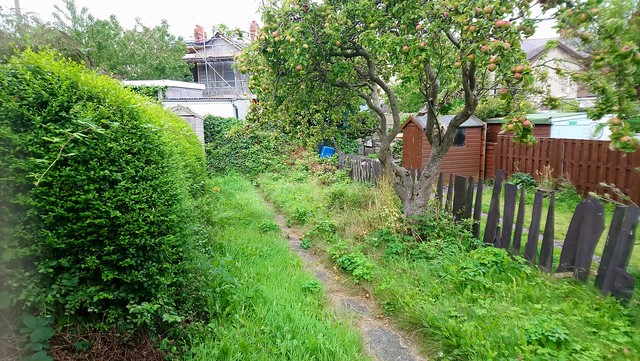Podcast: Play in new window | Download
Today we’re looking at the word fence [fɛns], as my slate fence is being replaced with a wooden one, mainly to stop my neighbour’s dog from getting in my garden.
Definition:
- a barrier enclosing or bordering a field, yard, etc, usually made of vertical posts connected with horizontal sections of sturdy material such as wood, metal or wire, used to prevent entrance, to confine, or to mark a boundary
[source]
It comes from the Middle English word fence/fens, from the Old French defens(e) (defence), from the Latin dēfensa [d̪ɛˈfɛnsɑ] (defense, protection), from dēfendō [d̪eːˈfɛn̪d̪oː] (to defend, guard, protect), from dē- (of, from) and *fendō (hit, thrust) [source].
The English word defend comes from the same root, as do related words in other European languages, such as défendre (to defend, forbid) in French and amdiffyn (to protect, defend) in Welsh [source].
The Old English word for fence was edor [ˈe.dor], which also meant enclosure, hedge, shelter, dwelling, house, protector or prince. This became edder, an now obsolete word that refers to flexible wood worked into the top of hedge stakes, to bind them together. [source].
Here’s a video I made of this information:
Video made with Doodly – an easy-to-use animated video creator [affiliate link].
I also write about etymology, and other language-related topics, on the Omniglot Blog.
You can also listen to this podcast on: Apple Podcasts, Stitcher, TuneIn, Podchaser, PlayerFM or podtail.
If you would like to support this podcast, you can make a donation via PayPal or Patreon, or contribute to Omniglot in other ways.

